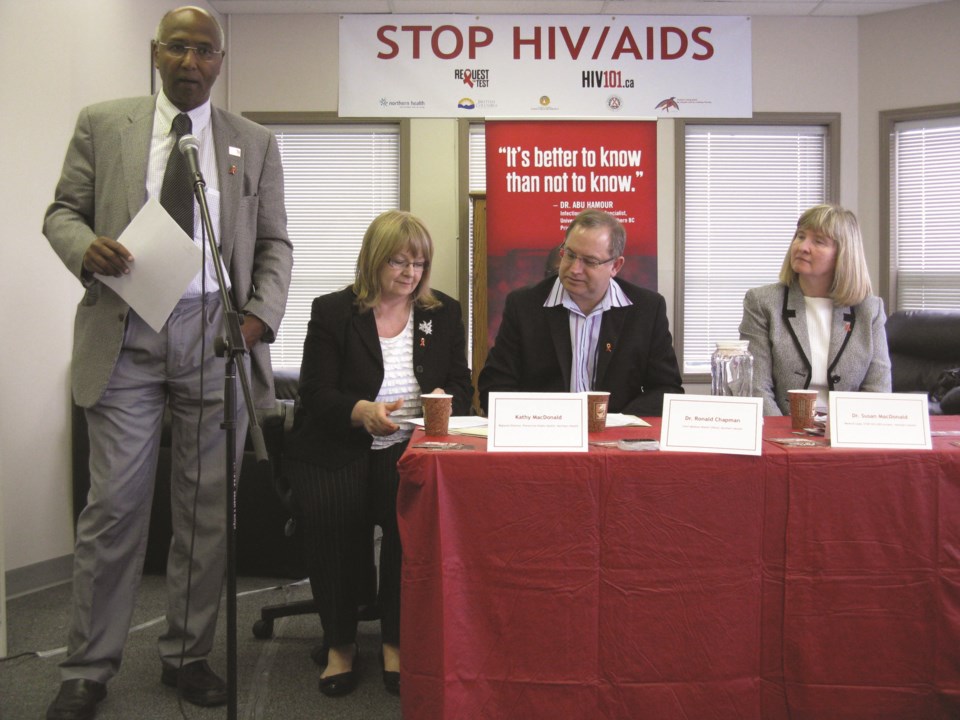Northern Health and their community partners want to spread HIV/AIDS - awareness, that is.
The team behind the STOP HIV/AIDS project has launched a brand new education and awareness campaign to teach northerners about the benefits of early HIV testing and treatment.
STOP (Seek and Treat for Optimal Prevention) HIV/AIDS is a four-year pilot project running until 2013 in Prince George and Vancouver's Downtown Eastside.
The new education campaign is as aggressive as the untreated disease, targeting every age, race and cultural demographic in the Northern Health region.
The campaign, designed by Splash Media Group, will be splashed across newspaper, television and radio advertisements, in bus shelters, on coasters, playing cards in community centres and prisons, on press-on tattoos and computer flash drives.
"We truly want to make the point that HIV does not discriminate," explained Dr. Susan MacDonald, Northern Health's medical lead for the STOP project. "We want to be able to find, help and to screen people who may be in the early stages of HIV and may not appear ill, but who may be carrying the virus."
The BC Centre for Excellence in HIV/AIDS estimates that 25 per cent of people who are
HIV-positive are unaware of their diagnosis. These same people are believed to be responsible for 75 per cent of new infections. Current screening guidelines in the province have been expanded to include testing for anyone who's sexually active from the age of 13 to 65.
As part of the STOP project - a collaboration between Northern Health, Positive Living North, Northern BC First Nations HIV/AIDS Coalition and Central Interior Native Health Society - everyone admitted to the University Hospital of Northern B.C. is offered an HIV test.
The cornerstone of the campaign is a new website, www.HIV101.ca, which offers information where to get tested for HIV/AIDS, where to find support services and treatment. There is also a video featuring project leaders, participants and their family members expressing their own feelings, wishes and even regrets about HIV/AIDS knowledge.
The campaign materials aim to "normalize people living with HIV/AIDS," explained MacDonald.
Posters and other material feature slogans such as "Are you positive you're not positive?" and "One life. One test."
"We're educating northerners with simple, direct messaged and we believe that they in turn will share that knowledge about HIV with friends and loved ones," said MacDonald.
Making getting an HIV/AIDS test as part of the mainstream should also help to eliminate the negative perception associated with being HIV positive.
Dr. Abu Hamour, a local infectious disease specialist, was excited about the campaign for that very reason.
"We know that HIV/AIDS is a difficult subject for many people to discuss or talk about. We know that the stigma still exists and surrounds this disease, but we would like to take this opportunity to break down these barriers and talk openly about HIV and AIDS," Hamour said.
The STOP HIV/AIDS pilot wraps up next March. If deemed successful, it will be implemented in other regions of the province.


